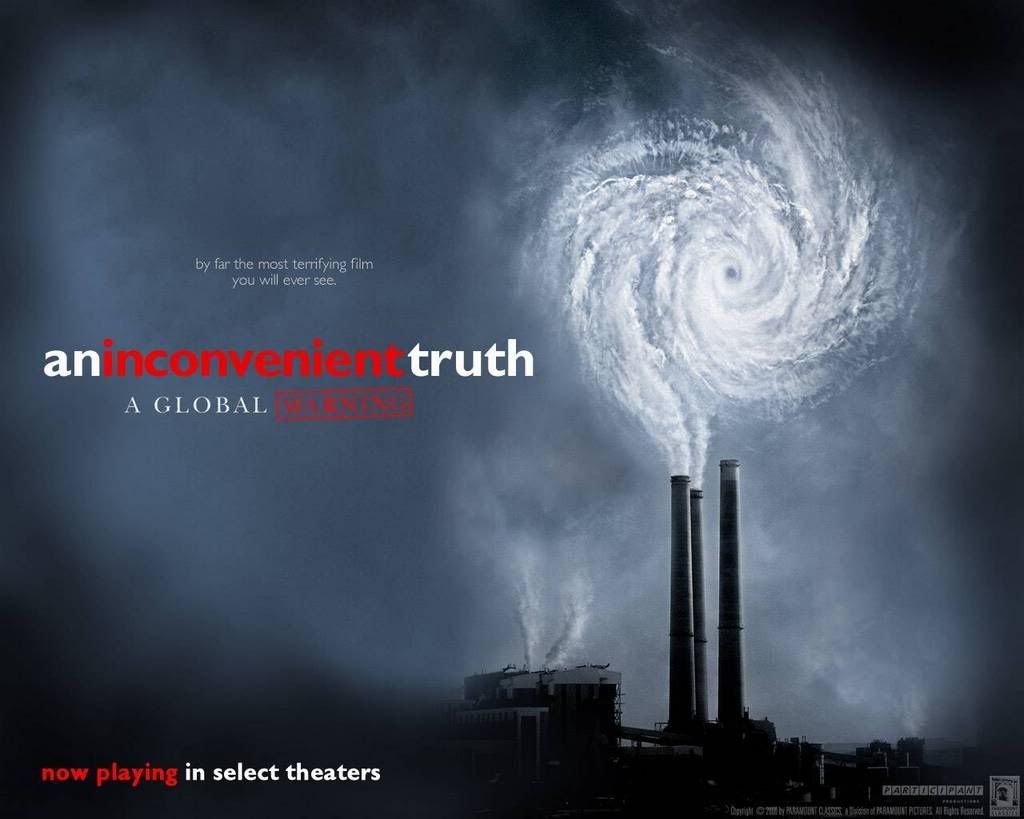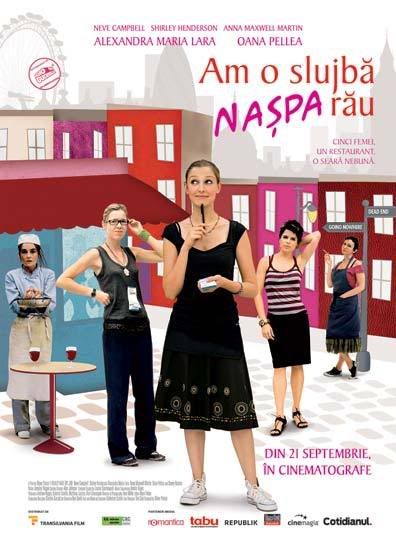~ Chris Tănăsescu - The Son of Mondaye
~ Adrian Ioniţă - A Postmodern Story
~ Axel H. Lenn - A Huge Nobel Gaffe
~ Axel H. Lenn - I Really Hate My Job

The Son of Mondaye
by Chris Tănăsescu
à Denise Ouvrier
The old lady is young - it's the grass
that will grow in the garden under her soles -
that's not ill-temper, nor illusion, but une promesse
which looms, when unattended blooms on window sills:
her vision blurred by tears during the Mess
she counts the days, she'll soon say happily My heart.
her son will take a photo of the cross
up in the sky - an air show of sorts;
then late at night, forgotten words, just like my father's
will come back and weave me a new ear drum:
nobody dies here, me and him neither,
the lady's memories - to feed my tummy and a tome,
and daddy, body lying in another ground
yet chosen, grows inside some of the sounds.

[Grigore Negrerscu - "Clock of Water"]

A Postmodern Story
by Adrian Ioniţă

[© Teampyro.blogspot.com]
Several years ago, I published a story in the New Yorker. Nothing postmodern, just a simple story about a millionaire who donated a testicle. The story was an overnight success, and the critics hailed me as the new king of the postmodern literature.At that time, I met Nikita Alexeev, an old friend and classmate. It's been twenty years since I've seen him and the circumstances were so strange that it makes the meeting hard to forget. I was hired by the Tribune and my apartment was in Pilsen, a suburb on the Southside of Chicago. Before going to office, my daily ritual was a stop at a BP gas station to buy coffee. On the right side of the front entrance, was a beggar in a wheelchair. He was a fixture in the place and I never missed a day without throwing him some change, even a dollar. It is a great feeling in the morning to get wishes of good luck and god blessings.
It happened, that one day, I was so absorbed and hurried, that I completely forgot about him. From the distance, he made sure to thank me anyway, even though in a half voice. The most miserable day of my life. I had a car accident, I lost the keys to my apartment, and I forgot to pay the bill for my American Express card. The next morning, I jumped out of the taxi and proceeded directly to the cripple with a dollar bill in my hand.
-"It's not the case, Max", said the cripple in Russian.
-"How do you know my name?"
-"Look in my eyes. Do you remember me?"
I'll be damned, in the wheelchair was Nikita Fiodorovich Alexeev.
-"Today, the coffee is on me", said Alex and jumped out from the wheelchair.
-"I thought that you were a cripple."
- "Never mind, are you coming in, or not?"
I followed him into the station, involuntarily limping with my left leg.
-"Sumatra or Columbian?"
-"Sumatra. Tell me... I don't understand... what are you doing in Chicago?"
-"Do you know the story about Mulla Nasreddin?"
-"Yes?"
-"Do you know how many variations it has?"
-"Phh, I think that even in Russia I heard one."
-"Over two thousand", exploded Alex. "Reality is a bitch Max, a bitch with capital "B", BITCH, BITCH, BITCH!"
-"Hey, cool off, people are watching us."
-"What do you know about Postmodernism?"
-"C'mon Alex, we live in America. To become postmodern, it is enough to write a story about a nut sack floating in a bucket."
-"What do you know about Reality, about Existence, about Truth?"
-"If you think that I am second hand cock-sucker on the subject, you are mistaken. But what has Mulla Nasreddin to do with this, for God's sake?"
-"It has, and you know why you don't understand? Because you Americans are more concerned about Sammy Sosa's bat than Baudrillard!!"
Unexpectedly, Alex jumped on the table:
-"America, listen Americaa, Americaaa, America, life is a bitch America. If you don't like reality, don't make other people disgusted by it.
Long live Postmodernism! Viva il Postmodernismo Mundial!!!"
-"Alex, get down from the table or we'll get arrested."
-"You don't tell me what to do, imperialistic leech! Viva la Mini-Revolution!!!"
I started to draw circles in the air with my finger, but it was too late. Two cops entered the station with their guns pointed at us:
-"Sir, raise your hands and get down from the table."
-"You", said one of them, looking at me, "Down on your knees!"
-"It is a misunderstanding", I tried...
-"Swallow my éclair you Dunkin' Donuts rats. Go ahead and kill me!" shouted Alex, ripping his shirt with a theatrical gesture. "What do you know about Postmodernism? What do you know about Modernism? Did you hear about Joyce, Chekhov, Turghienev or Kafka? What about Capote?" whooped Alex in Russian.
-"Sir, translate. Tell your friend to surrender."
-"Alex, I think that..."
-"Shut up Max, I talk. America, listen America, how can you take away abundance when some people are starving to death? How can you take away the class struggle from the people that never got to enjoy their Bourgeois revolution? How can you take away the feminist and egalitarian aspirations from all the women that never heard of women's rights? America, prepare yourself for the Mini-Revolution! Let's talk neighborhoods, let's talk local organizations! Let's abandon the Grand Illusion of Global Conspiracies!!!"
-"Alex, shut the fuck up! I don't want to die for your postmodern shit!"
-"Think glooooobally, and act looooocally, support the police organizations and Alcoholics Anonymous, support your local leaders and self-improvement groups! Prepare yourself for the big change! Support your laundromat and 7-Eleven..."
Suddenly, Alex fell on his knees with raised hands, and froze in that position without a breath. The mute audience, who witnessed the scene in disbelief, broke into furious applause. The cops lowered their guns and approached the table:
-"Brother", said one of them, "Lyotard is mandatory in the Police Academy. Thank you, thank you, brother, what a magnificent day! God be blessed!"
Nikita Fiodorovich Alexeev, died that day on the table, of what may be called a "postmodern BP shock". My writing after that incident never was the same. Should I mention the fact that after a week, I was fired from the Tribune, my name was instantly forgotten, and I became a postman in a small town in Indiana?

A Huge Nobel Gaffe
by Axel H.Lenn
This year, the Nobel Foundation Peace Prize was split between IPCC (The Intergovernmental Panel on Climate Change) and US presidency candidate Al Gore. The Nobel Peace Prize has always been politically oriented, some critics would even go as far as saying politically interested, but this year the Norwegian Committee made a very clear demonstration that it can also become politically involved. And I'm not talking Afghan politics here. The central argument, as defined by the Nobel Committee, states that the 2007 Peace Prize is awarded "for their efforts to build up and disseminate greater knowledge about man-made climate change, and to lay the foundations for the measures that are needed to counteract such change". Where Al Gore is concerned, the official Nobel statement refers to his lectures, books and latest movie, An Inconvenient Truth, concluding that "he is probably the single individual who has done most to create greater worldwide understanding of the measures that need to be adopted". Is he really?

If I were to ask any 9-90 year old about whom should be awarded a first prize for environmental struggles, he/she would most surely indicate Green Peace. Well, at such high academic levels, Green Peace is considered a quite aggressive and sometimes antipolitical movement - unofficially, of course. However, it's pretty obvious that if there was such a thing as a single most environmental active individual, he would be a Green Peace member most certainly. Definitely not Al Gore. An Inconvenient Truth is a quasipolitical material on global warming and other climate changes; among other things, we are told that these changes have been increasing dramatically since 2000, after Bush had been elected president. Supposing Bush had lost the 2000 elections and Gore had become president of the US, I'm more than certain that climate changes would have followed exactly the same dramatic pattern. Fact: US continues to burn 72% of the oil extracted yearly worldwide. Supposing Al Gore will become the next US president in 2008, I'm firmly convinced that no real action will be taken to stop climate alterations; moreover, I believe they will keep worsening. Aside from the quasipolitical "something has to be done", there is not a single solution offered or suggested in real terms. None whatsoever. In the man's words: "the climate crisis is not a political issue, it is a moral and spiritual challenge to all of humanity. It is also our greatest opportunity to lift global consciousness to a higher level". I'm pretty sure that people are globally aware of this crisis, but there's another important hint in this statement: the climate crisis is not a political issues, i.e. not politicians' business. "Moral" and "spiritual" translate as "optional" - i.e. no political, global action need be taken to do something about it. In his movie, Al Gore excuses himself, mentioning that as a member of the House of Representatives (1977-1985), Senator (1985-1993) and vice president of the US (1993-2001) he tried his best to make politicians aware of climate changes, but failed completely. In other words, 24 years of political debate (not to be confused with concrete actions!) produced nothing - perhaps this is the reason why Gore concludes climate changes are not a political issue. If you take a virtual trip to www.algore.org, you'll find other interesting, electoral topics there: Healthcare is a right, Americans deserve more protection, Get the troops home. Smells nasty, doesn't it? If you are curious enough to dig further, you'll find that Gore has not made up his mind yet whether he should run for the US presidency again, in 2008, or not. This is why visitors are invited to beg the man to candidate. To conclude, climate changes are not a political issue, but a very good electoral topic for Al Gore's future US presidency campaign, that has just been anointed officially by the Nobel Committee. A lovely picture, indeed.
Since the 1970s, the Nobel Foundation has been facing a gradually increasing suspicion that their decisions are politically motivated. The Nobel Peace Prize is the best example. Another example refers to the Nobel Prize in Economic Sciences, created in 1969, especially for USA economic geniuses. By 2007 included, there are 41 US laureates compared to only 20 laureates from the rest of the world. In economics, US is the best, obviously.
The Nobel Prize in Physiology or Medicine indicates another type of politically induced pattern: an initial period, 1901-1942, with 4 US laureates and 39 laureates worldwide; a second period, 1943-2007, counting 84 US laureates and only 62 worldwide. The Nobel Prize in Physics follows a similar politically derived pattern: 1901-1942 produced 6 US laureates compared to 40 laureates worldwide; since 1943 however, US takes the leading position with 74 laureates compared to only 61 worldwide. The Nobel Prize in Chemistry accounts for 3 US vs. 40 non-US laureates during 1901-1945, and for 53 US vs. 55 non-US laureates since 1946. However embarrassing these differences, two explanations are constantly brought forth: (1) the decisions made by the Nobel Committee depend on the nominations (who are kept secret anyway), and (2) a lot of physicians, physicists and chemists migrated to the US (obviously to be crowned geniuses). In order to counterbalance favoritism accusations, Nobel supporters invoke the Prize in Literature, with only 9 US laureates thus far. Similar to the Peace Prize, the literary section is politically interested in the good sense, with an eye on global issues, no matter the continent. In other words, these two Nobel awards serve general (and sometimes political) purposes, while the other 4 prizes merely show the superiority of the American spirit and, understatedly, render the US an academically biased mark of world leader legitimacy. Utterly disgusting! All the aforementioned suspicions regarding the biased decision taking process within the Nobel Committee and their presumed americanophilia have been confirmed fully on October 12, 2007 by the culprits themselves. Such a huge gaffe might be diminished slightly if Al Gore decided not to run as US presidency candidate - which I seriously doubt!

I Really Hate My Job
by Axel H.Lenn
If you have seen The Company of Strangers, Oliver Parker's I Really Hate My Job should seem familiar. Not a déjà-vu (definitely!), but something somewhat inspired, so to speak. Cynthia Scott's movie depicts the fortuitous short encounter of eight women who share their stories, comfort and help each other face past or present issues, including mortality. In terms of originality, it's the very first movie to offer an insight into womanhood and female psychology from a woman's point of view. And this is where Parker's movie takes over, updating and intensifying the dramatic content of the story, unfolding a day in the lives of five women who work at the same Soho bar, called Stella.
There is no plot, no spectacular action, just one detailed evening shift of a group of women trying to cope with the harsh reality they share. Five different typologies, five different lives, with different backgrounds, training and expectations, and a large scale of emotions they  experience, all the way from friendship to rebellion. Madonna (Anna Maxwell Martin) is the bar manager, quite an adorable, understanding and somewhat maternal character one falls in love with instantly. Alice (Shirley Henderson) is an aspiring writer who has to play the chef for one evening, and this situation stresses her out of herself, to the very point of breaking down every couple of minutes. She has a particular aura of innocence that draws a great deal of sympathy - Alice is definitely the most delicate figure on the set. Then there's Abbie, the selfish, almost always bitchy and hysterical bartender who basically annoys everyone - though a lovely person in public consciousness, Neve Campbell goes to different extremes this time. You will most surely find the character difficult to swallow. The worst thing about Abbie, she dreams of becoming a famous actress. Alexandra Maria Lara's character, bartender Suzie, is the cheerful, energetic and optimistic presence on the set. Many times, she enters and brings a breath of oxygen to the condensed, rat infested atmosphere in the bar kitchen. Delusional Rita, played by Oana Pellea, is a Latina washing the dishes at the bar. She is simply talking too much, nagging now and then, especially poor Alice. Rita is so out of this world, out of time and reality, that she could easily be taken for a complete lunatic. On the other hand, she has the deepest affection, a passion beyond words that stands for a troubled, yet vivacious sense of womanhood. experience, all the way from friendship to rebellion. Madonna (Anna Maxwell Martin) is the bar manager, quite an adorable, understanding and somewhat maternal character one falls in love with instantly. Alice (Shirley Henderson) is an aspiring writer who has to play the chef for one evening, and this situation stresses her out of herself, to the very point of breaking down every couple of minutes. She has a particular aura of innocence that draws a great deal of sympathy - Alice is definitely the most delicate figure on the set. Then there's Abbie, the selfish, almost always bitchy and hysterical bartender who basically annoys everyone - though a lovely person in public consciousness, Neve Campbell goes to different extremes this time. You will most surely find the character difficult to swallow. The worst thing about Abbie, she dreams of becoming a famous actress. Alexandra Maria Lara's character, bartender Suzie, is the cheerful, energetic and optimistic presence on the set. Many times, she enters and brings a breath of oxygen to the condensed, rat infested atmosphere in the bar kitchen. Delusional Rita, played by Oana Pellea, is a Latina washing the dishes at the bar. She is simply talking too much, nagging now and then, especially poor Alice. Rita is so out of this world, out of time and reality, that she could easily be taken for a complete lunatic. On the other hand, she has the deepest affection, a passion beyond words that stands for a troubled, yet vivacious sense of womanhood.
And there is another special feature of Parker's artistic view: the customers, people like you and me, who go to the bar and really have no idea about what's going on in the back. The overall picture is a comedy, but there are a few intense, dramatic moments, as well as tears and personal crises. The human touch is overwhelming.
I really Hate My Job, 3DD Productions 2007
www.ireallyhatemyjobthemovie.com
Director: Oliver Parker
Writer: Jennifer Higgie
Cast: Nene Campbell, Shirley Henderson, Alexandra Maria Lara, Anna Maxwell Martin, Oana Pellea, Danny Huston,...
Running time: 89 min.

|

